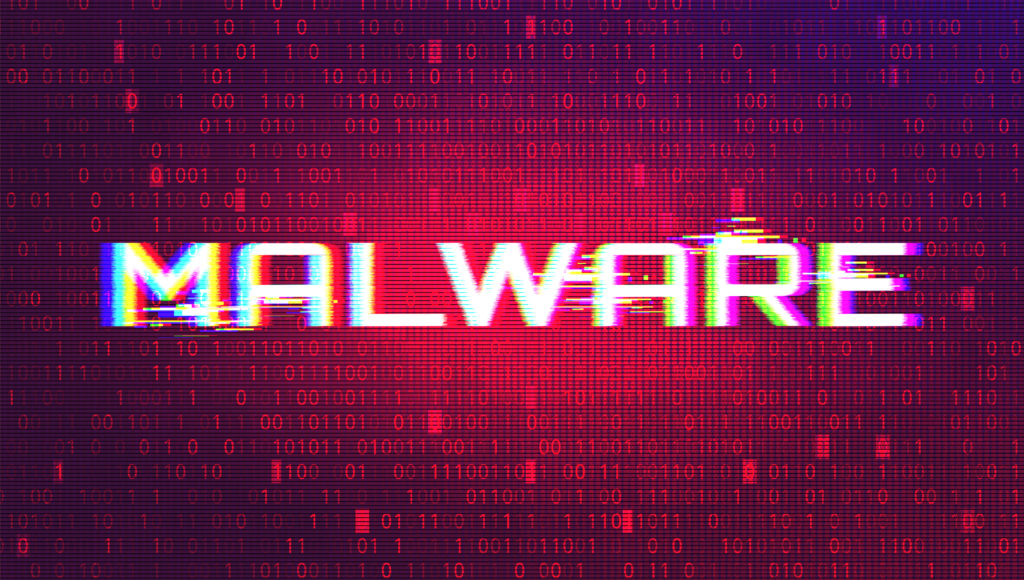
Today’s forms of malware are designed to spread quickly to as many connected devices as possible. Once a hacker infects one computer, server, or mobile device, automated code seeks out network connects and looks for any other places it can spread.
Both onsite assets and cloud assets that happen to be synching with an infected device can be hit with ransomware, viruses, and other forms of malware.
Once the infection is discovered and the virus is removed from the device, if it wasn’t done fast enough, you could have several other devices on the same home or business network that are still infected.
In 2021, 74% of surveyed organizations have experienced a malware infection that spread from one employee device to another.
Early identification of a malware infection is key if you want to reduce the risk of spread. Often people notice small quirks happening with their computer but are too busy to take the time to investigate further. So, they just put up with it until it becomes more obvious that those quirks are the result of a malware infection.
But the longer you wait, the worse this type of breach can become, and more costly to remediate.
It’s vital to watch for the warning signs of malware infection if you want to catch it early. Here are some of the most common signs to look out for.
Sudden Reboots of Your PC
If your PC is rebooting without being prompted, it could be due to a malware infection. Malware may prompt the reboot so it can complete a full installation of malicious code. Or your system may be rebooting because malware has damaged certain system processes.
Sometimes, you’ll get a reason in a message on the screen for the reboot, but this isn’t always the case. It’s important to have this checked by an IT professional if it’s happening.
Strange Popups for Antivirus or Other Software
One type of malware is called Adware and it can cause popups on your computer that look somewhat similar to what you might see from a legitimate program.
But these pop ups will be trojans that will install more malware on your system if you click them. They are often disguised as an antivirus popup or one for a PC cleaner or other device tool.
Continuous Processing Sounds
You will usually hear your processor whir when doing an activity such as installing an update or using a memory-intensive program. But this should be short and not something that happens when doing most PC activities.
If you notice continuous processing sounds coming from your PC, this could indicate that malware is running in the background and using your system resources.
PC Slows Down Considerably
Malware will often slow a computer down considerably. If you notice your system freezing up when opening multiple-browser tabs or when doing common activities like checking email, it could be that a virus is using system memory.
If you notice an unexpected slowdown of your computer, you should have this checked for potential malware infection.
Warning Messages You Don’t Understand
Some forms of malware will attack and rewrite system files, and this can lead to your PC throwing up strange warning messages that you may not have seen before.
These may include the names of files you’ve never seen and can mean that malware has damaged some of the critical files needed to run your computer.
Corrupted or Missing Files
When browsing through your file navigator, if you see any files that you know should be there but aren’t or if you try to open a file and the software says it’s corrupted, this could be ransomware.
Ransomware is a form of malware that encrypts files or sometimes hides them. Shortly after the process is complete, a ransom note will appear on the screen with a ransom demand that must be paid to have the damage undone.
Missing or corrupted files can indicate a ransomware infection. This should be checked immediately, and the PC disconnected from your network to help prevent the spread to other devices.
Short on Storage Space When You Shouldn’t Be
Most people aren’t checking their available storage space daily, so they might be totally unaware that a virus has replicated and used up much of their hard drive space in the process.
One reason that you can have trouble running some programs is that your storage may be full. If you know you should still have plenty of space, but see your storage gone, it could indicate the presence of malware.
Don’t Wait! Get System Quirks Checked Out Immediately
Don’t leave yourself at risk by ignoring the signs of a malware infection. Connect2Geek can help with a quick assessment of strange behavior on your PC. If needed, we’ll do a thorough virus removal for your Treasure Valley home or business computer.
Schedule your free consultation to learn more today! Call 208-468-4323 or reach out online.
